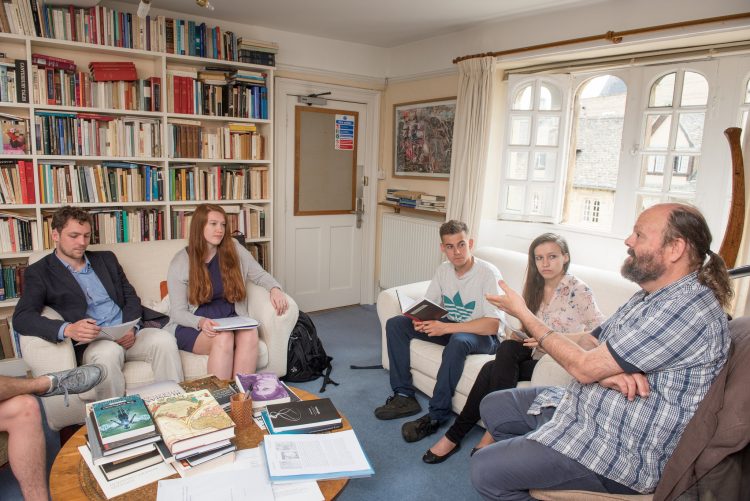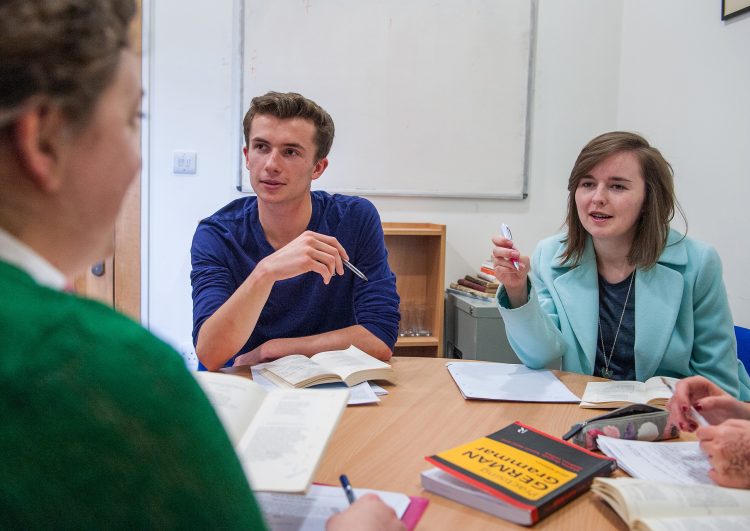Katie – French
Journey to Oxford
I grew up in a little village near Ely – my secondary school was a very average state school but I had some really great teachers who encouraged me to aim for Oxbridge. I then went to a big state sixth form in central Cambridge that had really great Oxbridge preparation.
Why did you choose to study your course? What is your favourite thing about it?
I spent a lot of time choosing between English, French, and joint honours courses – I knew I wanted to study literature in depth, but didn’t want to lose my French language skills and found foreign literature really interesting. The Oxford ‘French Sole’ course solved this dilemma perfectly: all Oxford modern languages degrees have a huge literature focus, and the sole course means you spend less time on grammar than joint honours language students and instead get to study things like philosophy, theory, and cinema, as well as taking more literature or linguistics options in later years. My favourite thing about studying French is the variety – in one day I might be translating a recently published novel, reading some medieval French, and writing an essay about French theatre.
How is your course taught?
Modern Languages degrees require a lot of independent reading and writing. On the literature side of the course, I have on average one essay or commentary per week, which will generally take me about two days of reading and two days of planning/writing. These could be on anything from the female body in modern French novels to Baudelaire’s art criticism, and there are also optional lectures available on a range of literature topics.
For language, there are weekly grammar classes, for which you have to do an exercise translating sentences or a short text into French. We also have weekly speaking classes, and fortnightly classes on translation into English, where we work through a text on analysing the possible translation choices. Teaching for language and translation is generally in groups of 3-6, while literature tutorials are in pairs or one-on-one.
Describe your average Oxford day…
In second year, most of my classes are at about 11 or 12 – I’ll walk from my house in Cowley to college, treating myself to a coffee on the way, then have a class on grammar or translation in college. I’ll grab lunch, and then go to the college library to work on my essay for most of the afternoon. I do lots of student drama, so will often have a rehearsal in the early evening and some bits of admin to do for that. I’ll eat in college or cook with friends at home, then do a bit more degree work before finishing for the day. In the evening, I’ll do some more extra-curricular bits – often some poetry or student journalism editing – then relax with my housemates or, a couple of times a week, go out to one of Oxford’s clubs or to a college bop!
Why did you decide to apply to St Edmund Hall? What is your favourite thing about it now you’re here?
Having never visited Teddy Hall, I was persuaded by the mentions of drama, music, and creative writing on the college website, as well as the photos of the lovely front quad. My favourite thing about the hall is its handy central location and the lovely choir that I rehearse and perform with weekly!
What helped you prepare for the admissions process?
Applying for a literature-based degree meant I did a lot of reading. My main piece of advice for this would be to read what you enjoy and find interesting, not just what you feel like you should have read – it’ll make it much easier for you to write about in your personal statement, and to talk about at interview. It can also be helpful to find things that connect your hobbies and interests with your subject – I went to a workshop on translating poetry out of interest and then found it really useful for my personal statement. In terms of the MLAT admissions test, it really is just a case of drilling grammar and keeping good revision notes – they’ll be invaluable once you get here too.
What was the biggest misconception you had about studying at Oxford before you came?
That everyone would be very serious, studious, and scarily intelligent – people work hard but as a general rule don’t take themselves too seriously, and everyone has lots of other interests outside of their degrees!
What would you tell your 17-year-old self about applying to and studying at Oxford/St Edmund Hall now?
Try not to stress out so much! You’re working hard enough, don’t worry so much about what everyone else is doing.
Where next?



